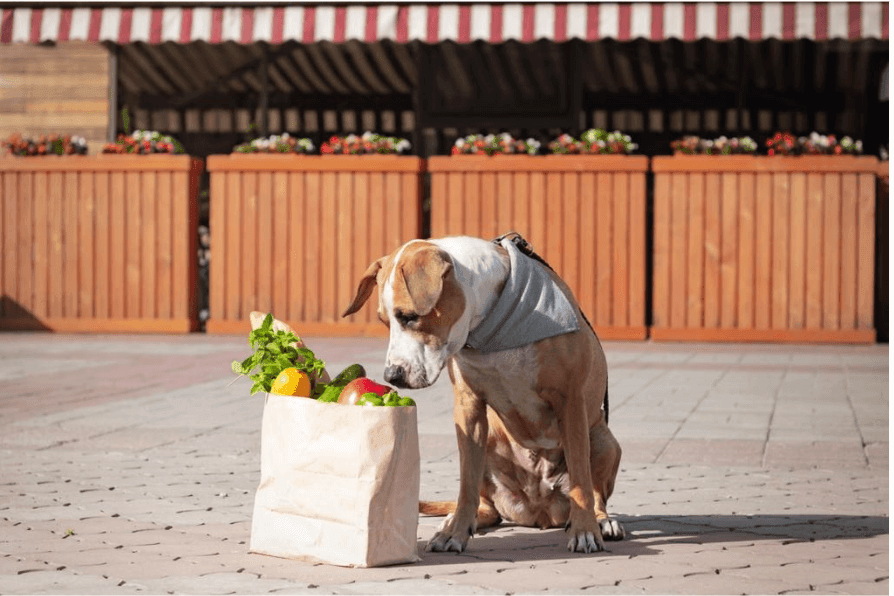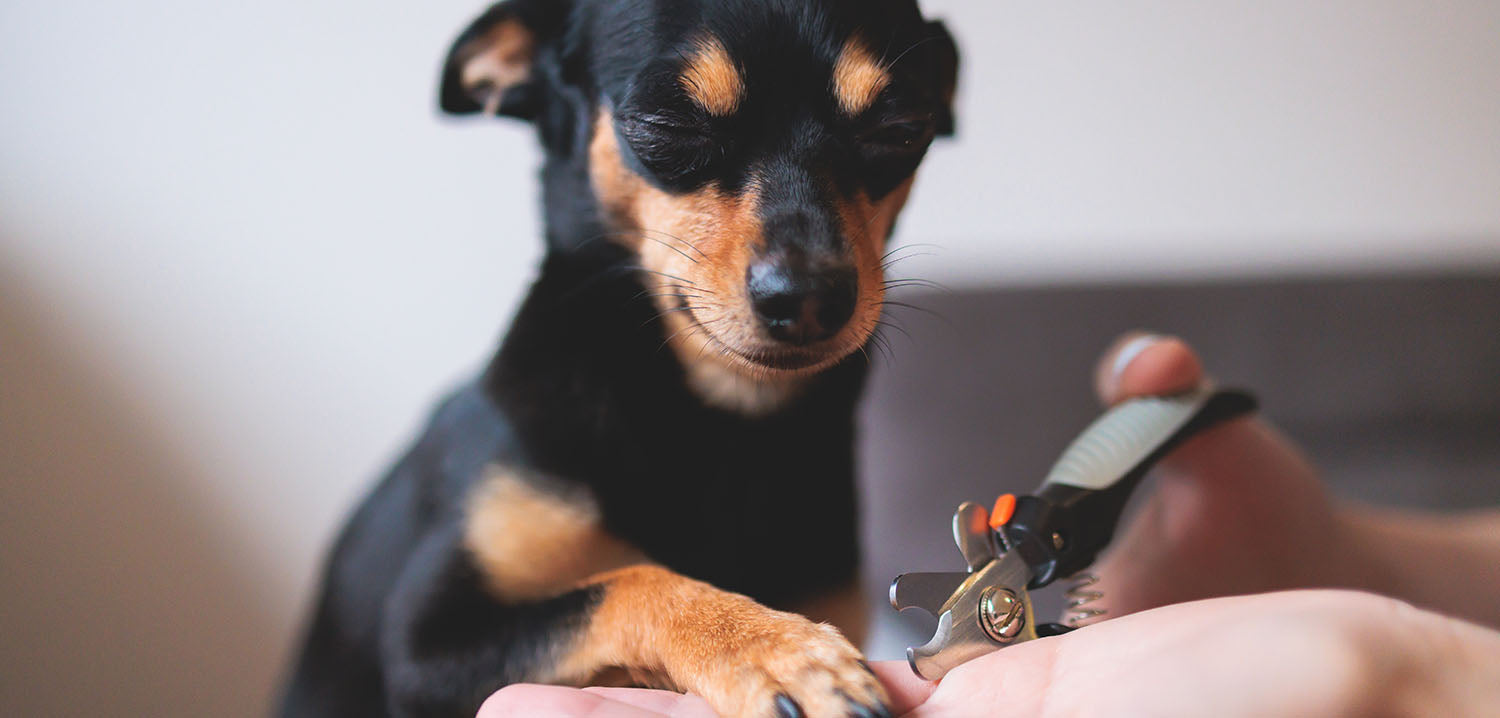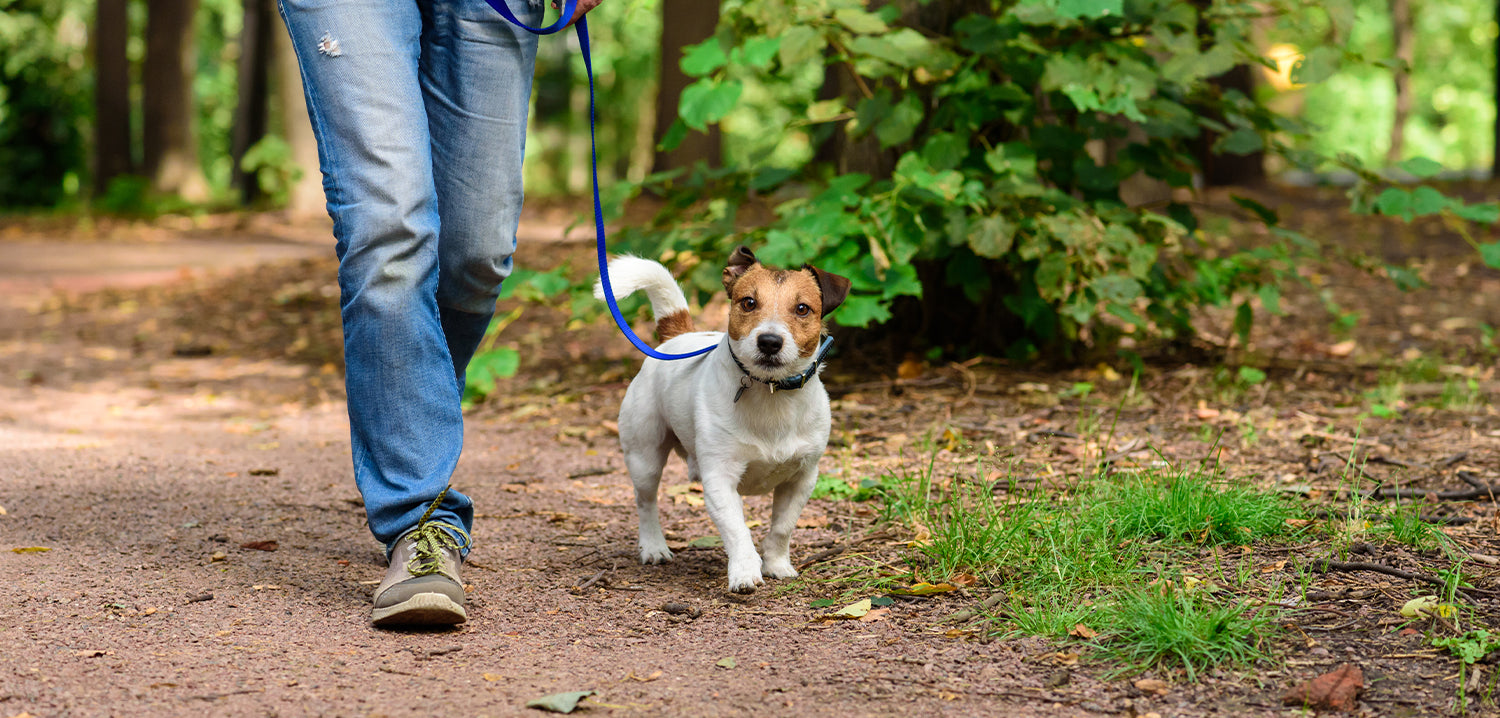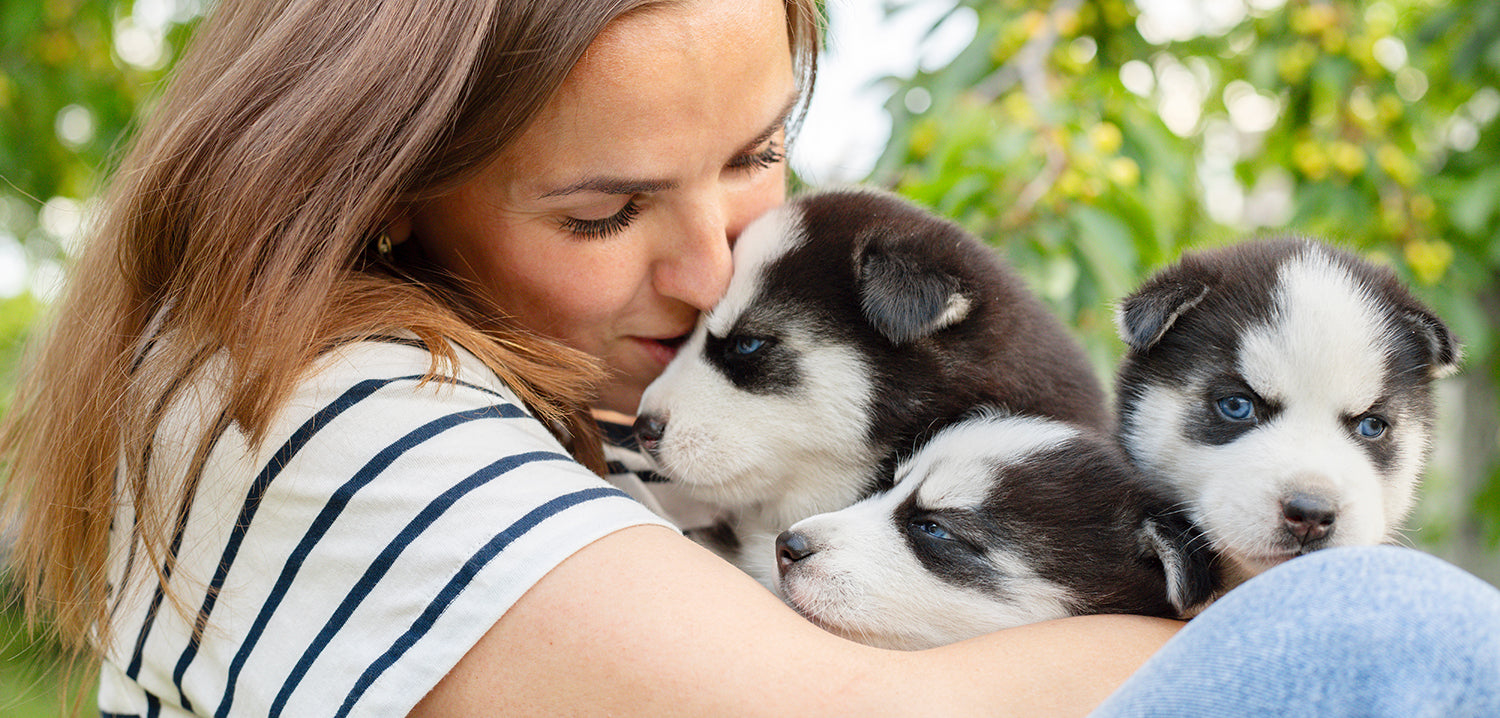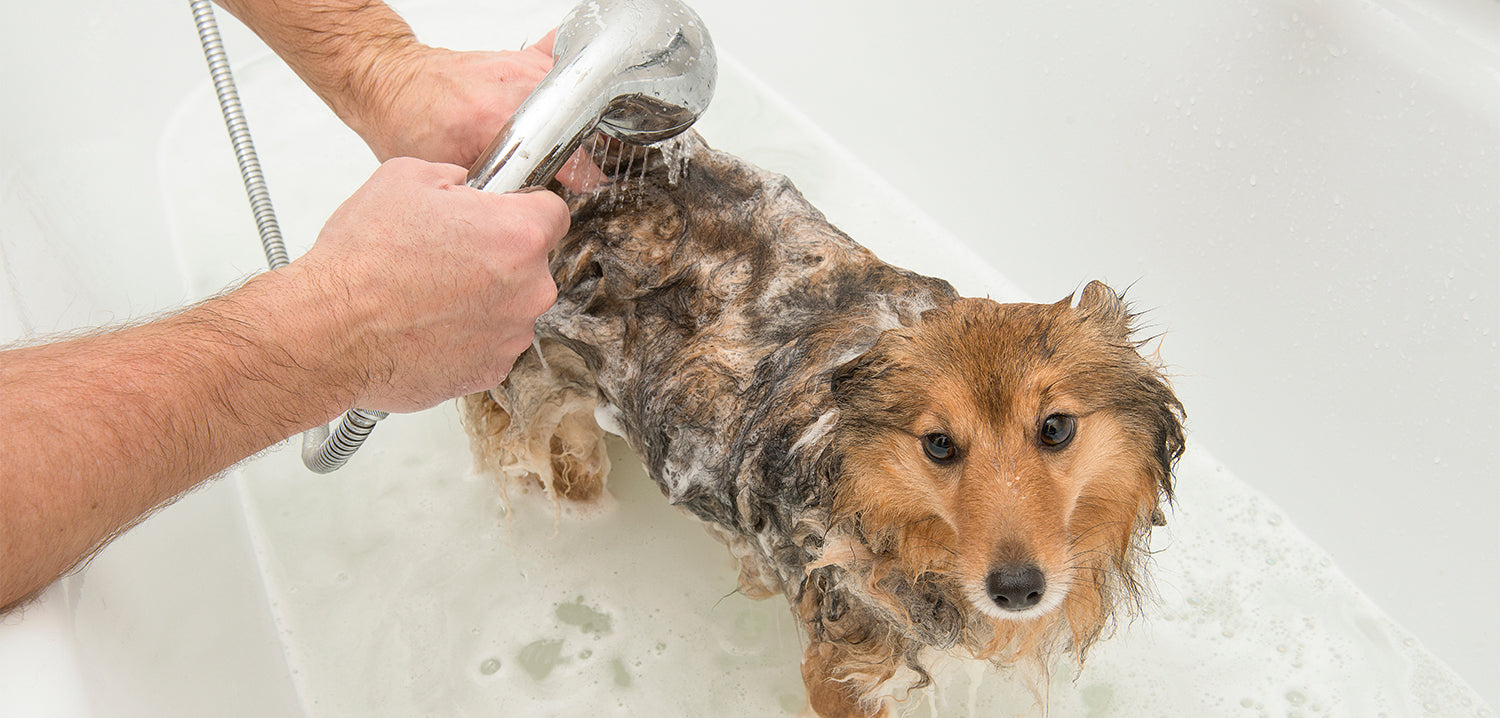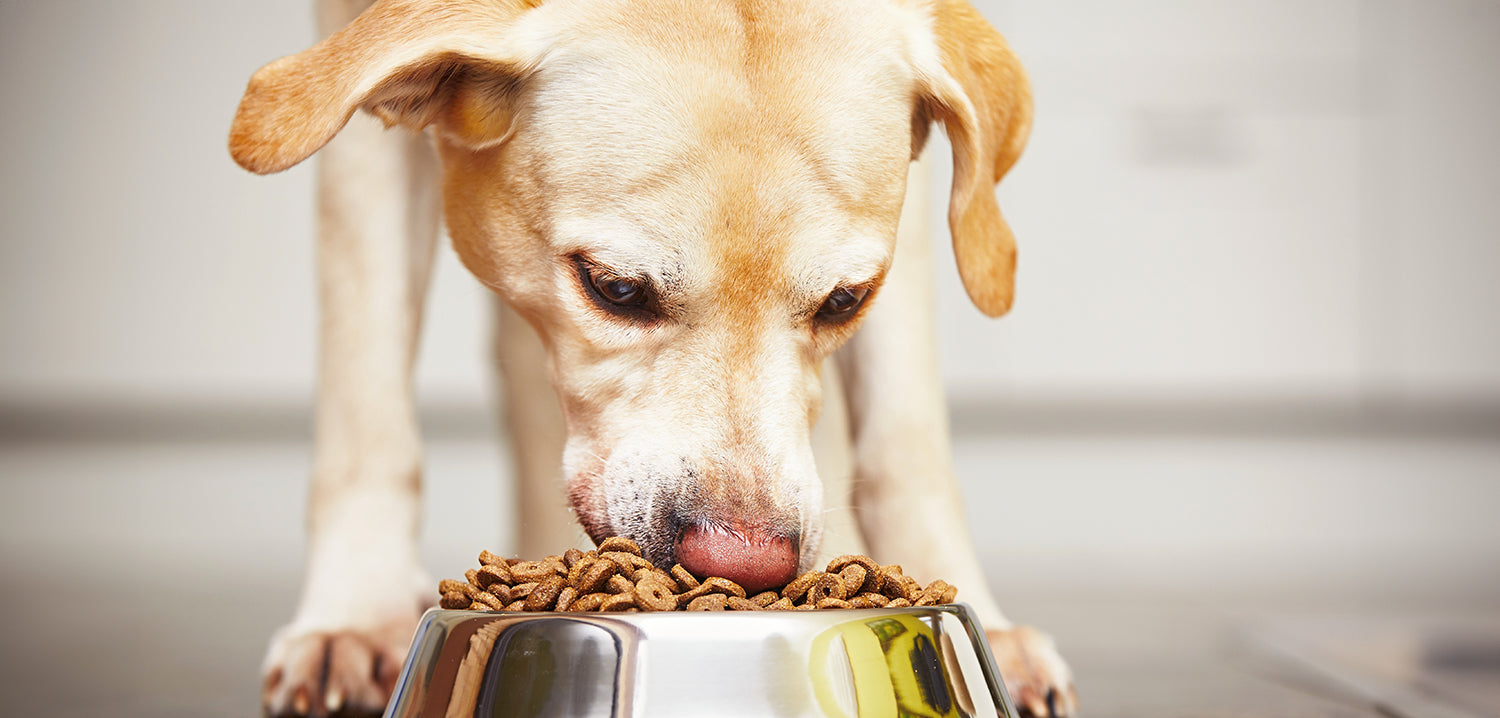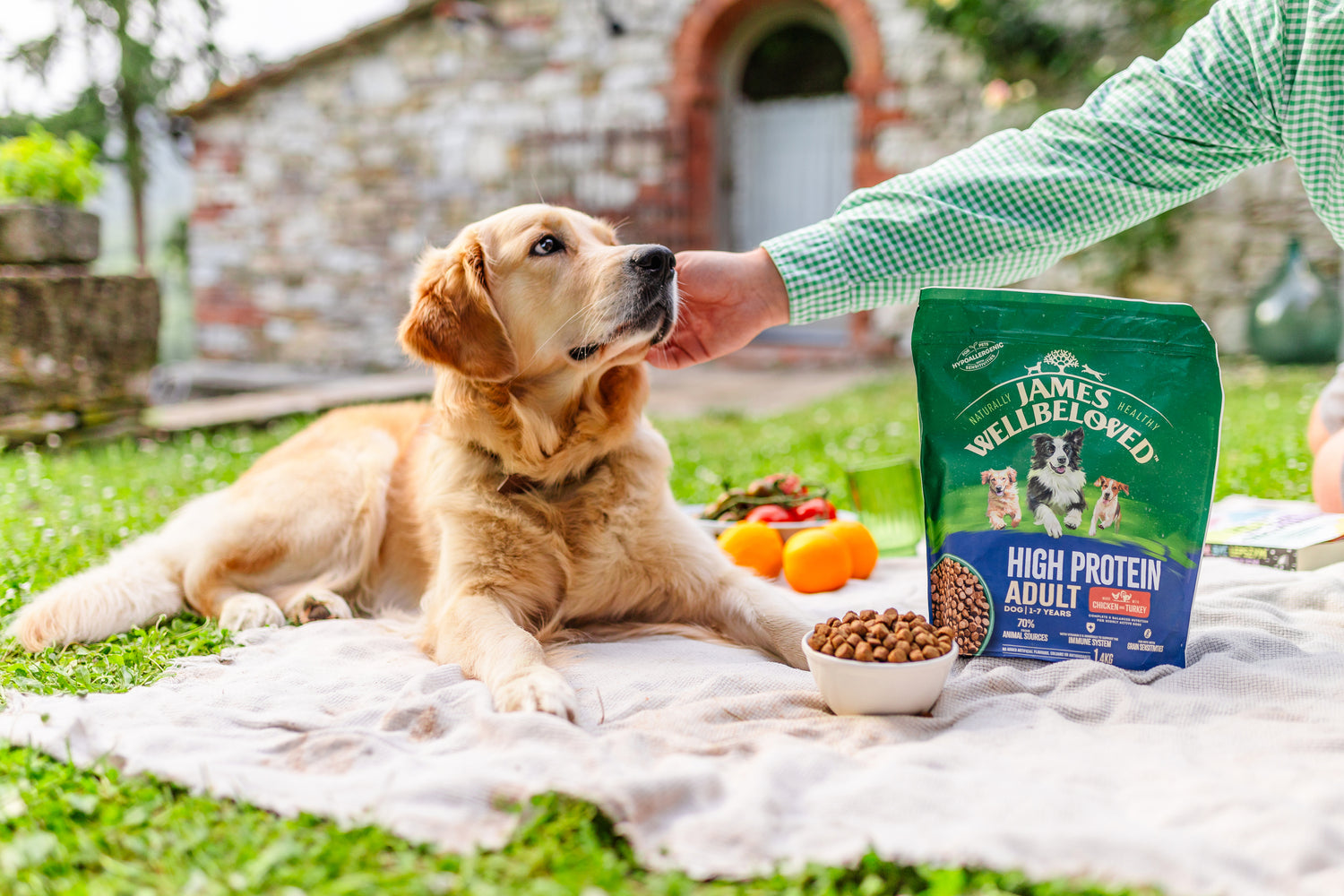If you love to eat peppers - raw or cooked - you may be wondering if you can share them with your canine pal. As it happens, yes, dogs can eat bell peppers safely and they’re likely to enjoy the refreshing crunch of a slice from time to time! Every colour of bell pepper is perfectly healthy for your dog to enjoy in moderation, but red peppers are best, as they have the highest nutritional value. Dogs shouldn’t eat spicy peppers though, as these can cause irritation and discomfort. While you might assume that all fruits and vegetables are safe for dogs to eat, that isn’t always the case. For example dogs can eat cucumber safely, but there are specific rules for dogs eating tomatoes, watermelon and pineapple. So, it’s important to fully understand what dogs can and can’t eat, as you may be surprised about some of the foods that can cause trouble. In this article, we’ll talk more about what types of peppers dogs can eat (for example can dogs eat red peppers, green peppers, yellow peppers and even if dogs can chilli peppers); how you can serve peppers for your dog (such as can dogs eat peppers cooked or raw?); and how much they can tuck into safely.
Are peppers good for dogs?
Yes, dogs can eat bell peppers as a healthy, low-calorie snack on the odd occasion. They even pack a nutritional punch! As long as you clean them beforehand and remove the seeds and core, peppers can offer a series of health benefits to your dog. These include:- Vitamin A - Supports healthy vision, growth and immune system
- Vitamin C - Reduces inflammation and signs of ageing
- Vitamin E - Aids the development of strong and healthy muscles
- Vitamin B6 - Promotes healthy brain function and the production of red blood cells
- Vitamin K - Helps maintain strong, healthy bones and eyes
- Beta-carotene - Promotes good eye health, as well as healthy skin and coat
This said, like with many foods humans enjoy freely, dogs should only eat peppers in moderation and it's best to introduce them to your dog slowly in case it upsets their stomach. They can enjoy a couple of chunks here and there as a fun, crunchy treat, but it’s not recommended as a core part of their diet, as dogs don’t need lots of vegetables as we do. Even if peppers are generally safe for dogs when fed correctly, you should ask your vet whether your dog should eat them first, as they may have specific needs or nutritional restrictions.
What kind of peppers can dogs eat?
Dogs can eat bell peppers of the sweet variety, but if you’re wondering if dogs can eat chilli peppers or other spicy peppers, the answer is no. It’s important you never give them spicy peppers, as they contain an active ingredient called capsaicin, which causes the hot, burning sensation when eaten - which is actually there to prevent mammals from eating them. While us humans strangely enjoy the sensation, dog’s won’t have the same appreciation for it! Spicy peppers aren’t toxic for dogs, but your pooch is likely to become highly irritated by the burning sensation, causing coughing and retching, and possibly a bad stomach and diarrhoea. If your dog somehow eats a spicy pepper, you should monitor them for symptoms of illness and contact your vet for advice if they do appear unwell.
Can dogs eat coloured peppers?
Yes, dogs can eat yellow peppers, green peppers, orange peppers and red peppers. All colours offer health benefits, but red peppers have the highest vitamin and mineral content as they’ve been on the vine longer. This means they’re the best option to feed your pooch to reap the nutritional value.
How to feed dogs peppers?
Dogs can eat peppers cooked or raw, as long as you don’t add any seasoning or cook them alongside ingredients like onion or garlic, which are toxic for dogs. The seeds from a bell pepper aren’t necessarily dangerous for your dog, but it’s best to remove them along with the core and stem if you can, as they can cause indigestion and stomach upset in some cases. In terms of serving suggestions for peppers, you can offer them to your dog in chunks - cooked or raw - as a healthy treat from time to time. Alternatively, you can add some chopped up pepper to their regular meal for added nutrition, in the same way dogs can eat sweetcorn sprinkled on their dinner. Sometimes the outer skin on a bell pepper can be a little bit tough for your dog to chew and digest. In this case, you can try steaming it to soften it up. For smaller dogs, you may also want to chop it into small pieces to make it more manageable for them. You should always make sure your dog has access to water when they eat peppers, as well as any other food, as this helps nutrient absorption and ensures they don’t get bits lodged in their throat.
Can dogs eat peppers raw?
Yes, dogs can eat bell peppers raw and many dogs really enjoy their crunchiness. This said, they are slightly tougher to chew and digest than cooked or pureed peppers, so these may be better serving options. Similar advice is given for how dogs can eat broccoli, as stems can be tough if not cooked beforehand, which can pose a choking hazard.
